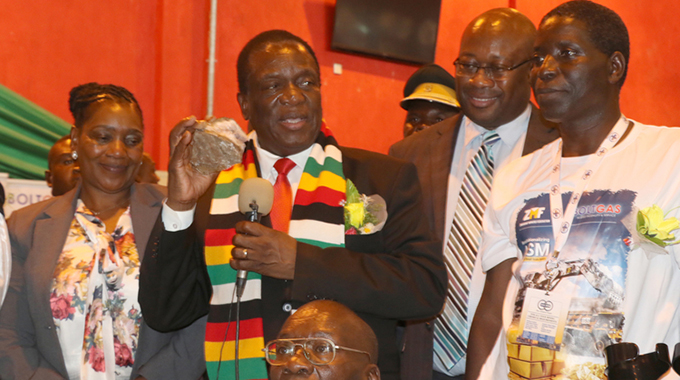Editorial Comment: Support livestock extension system

The country’s extension service offers a vital link to the survival of not only the livestock sector, but the whole agricultural system which is the mainstay of our nation’s food security and economy. Zimbabweans are well-known meat lovers who derive income and livelihoods from livestock.
And as a country we need to put our money where our mouth is.
We cannot afford to neglect the livestock extension system which is a major pillar for animal husbandry in both commercial and smallholder farming areas.
To boost the country’s national herd, the Government must allocate more resources to improve the curative treatment of individual animals, preventive health and health screening of animal products.
Without providing adequate resources to the Department of Veterinary Services, we will not be able to contain major outbreaks of foot-and-mouth diseases and a host of other tick-borne diseases which continue to decimate our livestock.
As the nation eagerly awaits 2020 National Budget proposals, we implore the Government to increase its allocation to the Department of Veterinary Services to boost the national herd and give this department adequate manpower, equipment and vaccines to enhance animal health.
Apart from the Government which is facing budgetary constraints, we also call upon our international funding partners and NGOs to continue to support our livestock sector.
If more resources are channelled to veterinary extension services, Zimbabwe can benefit a lot from its livestock sector and fully realise its potential as a foreign currency earner and valuable food resource.
Livestock extension staff across the country are either incapacitated due to lack of equipment, transport and drugs or are too few to be accessible.
As a result, the causes of deaths in domestic animals are no longer easy to establish due to the collapse of the veterinary service in most parts of the country.
All this is largely due to a myriad of problems facing veterinary extension support delivery systems in communal areas.
Our veterinary extension system was once the pride of Africa and we must fund it adequately and restore its basic operations.
Drought, shortage of feed, shortage of water and livestock diseases are now the top ranked constraints for livestock production in most parts of the country. We must do everything we can to ensure our livestock sector survives.
As a country we welcome all forms of support to this critical sector. It is pleasing to note that the UN FAO with support of the Japanese Embassy in Zimbabwe is working with Government to implement a US$300 000 emergency response project focusing on human wildlife conflicts in Hurungwe district in Mashonaland West province.
The programme is supporting the Department of Veterinary Services to offer training to animal health extension workers to enhance knowledge of transboundary diseases (TADs), improve veterinary surveillance systems and disease reporting systems amongst veterinary services personnel in Hurungwe district and other districts in the country.
All this is a testimony that the country’s re-engagement efforts are bearing fruit. Apart from support to contain major outbreaks of animal diseases, more support is required to help our farmers restock their herd as well as promoting strategies to produce cheaper stockfeed and vaccines.
Our national herd — which stood at six million in 2000 — now stands at about four million and we must find financing mechanisms that will ensure sufficient developmental finance and concessional finance to be made available to farmers through local banks.
The situation in the livestock sector is slowly improving, but we need to increase livestock production, both in terms of numbers and quality so that the country can take advantage of export opportunities.
The livestock sector plays a vital role in the country’s economic and food security situation and every dollar invested in this sector counts.
Cattle are an important asset and agricultural experts estimate that they provide 90 to 95 percent of draught power to the bulk of our smallholder farmers.
Apart from this, it is a valuable food resource, providing both milk and meat and also a source of manure for cropping in smallholder farming areas.
And in terms of exports, the livestock sector has an enormous potential to generate more revenue and jobs for the country. Apart from beef and milk production, the sector is generating more foreign currency from exporting crocodiles, fish, poultry, pork and milk.
Poultry and small ruminants, such as rabbits, sheep and goats are also an important source of protein for the majority of the poor. It therefore makes sense to put money where our mouth is.










Comments